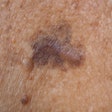
Patients who previously had a false-positive breast or prostate cancer screening test aren't deterred from future screening -- in fact, they are more likely to comply with screening protocols, according to a study published online April 23 in Cancer.
The findings suggest that false positives may actually serve as cancer screening reminders, wrote a team led by Glen Taksler, PhD, from the Cleveland Clinic.
Taksler and colleagues examined 10 years of electronic medical record data for 92,405 patients to assess the association between false-positive screening test results and future participation in cancer screenings. Patients ranged in age from 50 to 75 years.
The group found the following:
- Women with false-positive mammograms were at least 43% more likely to undergo future breast cancer screenings and at least 25% more likely to undergo future colorectal cancer screenings.
- Men with false-positive prostate cancer screenings were at least 22% more likely to obtain future colorectal cancer screenings.
The researchers did find, however, that women with previous false-positive fecal occult blood testing (colorectal cancer screening) were less likely to be up-to-date with breast cancer screening.
Other groups have described results that conflict with these findings, and more research is needed, Taksler and colleagues wrote.
"False positives are a limitation of the technology that we use to check for cancer," he said in a statement released by the Cleveland Clinic. "Hopefully, over time, the technology will improve so that patients don't have to deal with as many false positives."



















